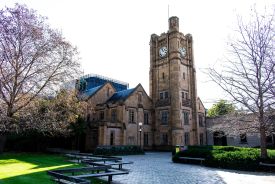Colleges May Have Overcorrected In Responding To Campus Sexual Assault Allegations; A Student Defense Lawyer Shares His Thoughts
BySeveral universities have faced the issue of sexual assault in its campuses. Earlier this year, Yale and Stanford were placed under the spotlight for the rape allegations that its students faced.
Just this month, former Stanford University Brock Turner was released from jail after just serving half of the six-month sentence for his sexual assault case. The school maintained that it "did everything within its power to assure that justice was served in this case." According to CBC News, Stanford University is under more scrutiny now that Brock Turner is free and only served little time.
In a piece for The Washington Post last March, student defense lawyer Shanlon Wu shared his thoughts on how colleges and universities may have overcorrected in their response to campus sexual assault allegations. Wu noted that schools' recent mandates on new sexual misconduct codes and procedures, while well-intentioned, can actually pose grave dangers to accused students.
"As a former sexual assault prosecutor, I know firsthand that prosecutors and police both consider sexual assault investigations to be among the most difficult cases to investigate and prosecute," Wu wrote. "The cases do not get any easier in a campus setting, which probably accounts for the reluctance of many prosecutors to take on criminal cases that involve college students. Police and prosecutors are particularly leery of cases where alcohol may have rendered one or both parties poor witnesses."
It was noted that both the police and prosecutors make careful threshold determinations to decide whether a case has strong enough evidence to go forward to a trial. However, such threshold determination is usually missing in most campus sexual assault cases.
Furthermore, Wu revealed that nearly every allegation goes forward to a hearing with panels of students and administrator/faculty representatives functioning as both judge and jury. Colleges and universities insist that these panelists receive training, but the extent and caliber of the training remains unknown.
Colleges and universities should review and investigate each sexual assault allegation in their campuses thoroughly and professionally. "While every case deserves investigation, not every case deserves a hearing," Wu added.
© 2026 University Herald, All rights reserved. Do not reproduce without permission.








